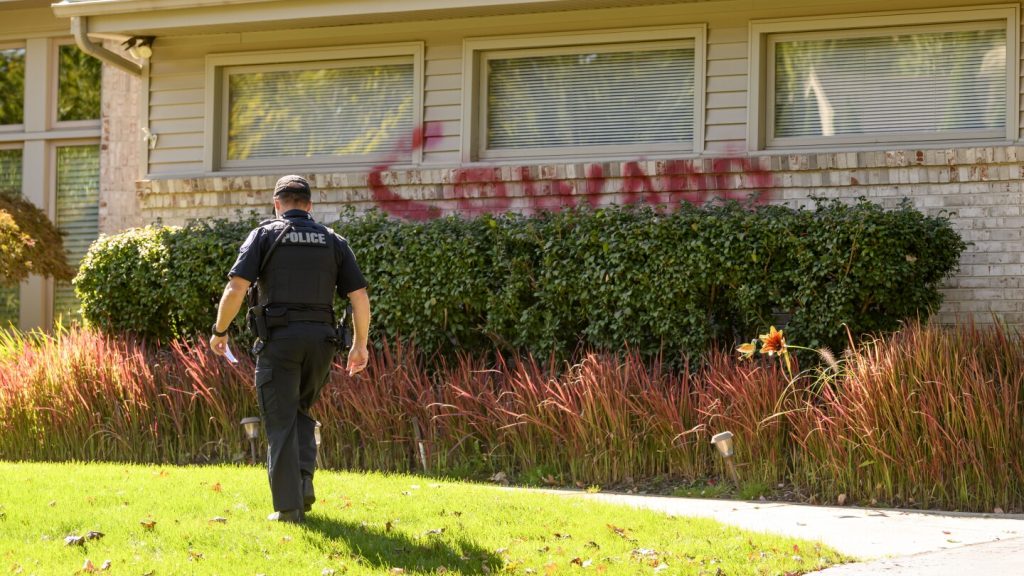An incident of vandalism occurred in West Bloomfield, Michigan, on the first anniversary of the attack on Israel by Hamas. The house owned by University of Michigan President, Santa Ono, was spray-painted with the words “intifada” and “coward.” The term “intifada” refers to the Palestinian uprising against Israel. Along with Ono’s house, the home of Erik Lundberg, the university’s chief investment officer, was also targeted. The university has faced criticism from pro-Palestinian activists for not taking steps to eliminate any investments linked to Israel. However, the university maintains that they have no direct investments and only a small portion of their endowment is placed with funds that may include Israeli companies.
Mark Bernstein, a member of the university’s Board of Regents, condemned the vandalism as an “assaultive act of intimidation by the antisemitic mob.” This incident is not the first time the university has faced protests and demonstrations related to the Israeli-Palestinian conflict. In the past, protesters wearing masks set up camp outside the home of a regent, and a pro-Palestinian camp on university grounds was cleared by police in May. Some individuals have been charged with trespassing or resisting police during these demonstrations. The recent vandalism incident adds to the ongoing tensions surrounding the university’s stance on investments linked to Israel.
The University of Michigan has been under scrutiny for its investment practices amid the Israeli-Palestinian conflict. The university claims to have no direct investments tied to Israel, with less than $15 million placed in funds that may include Israeli companies, amounting to less than 0.1% of the total endowment. However, this has not stopped criticism from pro-Palestinian activists, who continue to call for divestment from any companies with ties to Israel. The recent vandalism at the homes of top university officials reflects the charged atmosphere surrounding the issue of investments and the Israeli-Palestinian conflict.
The incident in West Bloomfield has added fuel to the ongoing debate over the university’s stance on investments linked to Israel. Critics argue that the university should do more to ensure that its investments do not support companies involved in the Israeli occupation of Palestinian territories. On the other hand, university officials maintain that they have taken steps to minimize any direct investments in Israeli companies. The vandalism at the homes of university officials has been condemned as an act of intimidation, sparking further discussions on how the university should address the issue of investments tied to controversial political issues.
As tensions continue to rise, the University of Michigan faces growing pressure from both sides of the Israeli-Palestinian conflict. Pro-Palestinian activists push for divestment from Israeli-linked companies, while supporters of Israel call for a balanced approach to investments. The recent vandalism incident highlights the intensity of these debates and the challenges faced by university officials in navigating the complex issues surrounding investments and political conflicts. Moving forward, the university must find a way to address these concerns while upholding its commitment to academic freedom and open dialogue on contentious issues.


